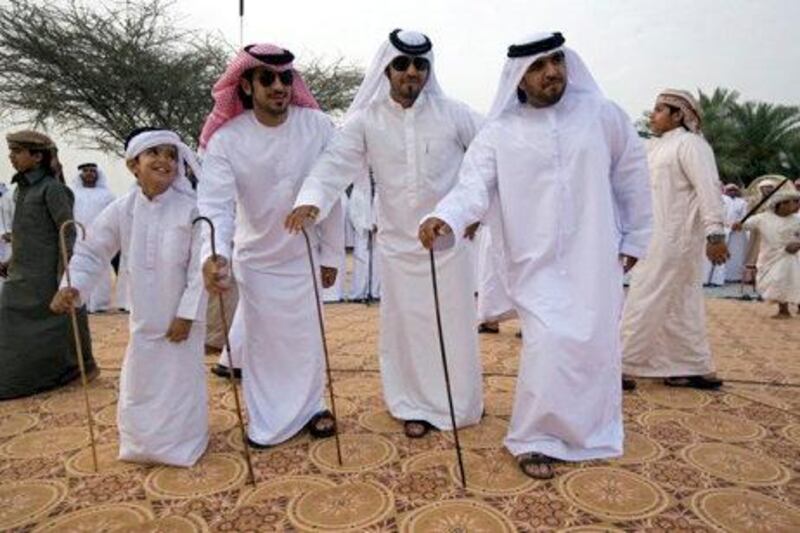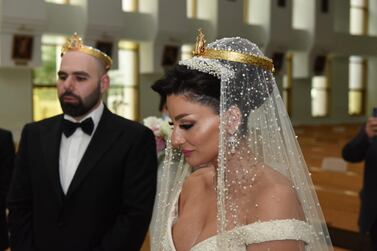In the past few months, following the spread of coronavirus, we have seen Emiratis return to a tradition common in the 1970s and even earlier. In light of the pandemic, authorities restricted the number of people who could gather socially, leading many Emiratis to opt for smaller and simpler weddings.
This spared many newly-wed couples of the burden of high costs, and at times loans which Emirati men sometimes take on in order to pay for the exorbitant cost of ceremonies. In the past, I have known people to sell their cars to cover lavish wedding celebrations. But the new circumstances of Covid-19 have brought a welcome shift in expectations in Emirati society.
Simple weddings grew more frequent primarily due to the closure of wedding halls. Many had their weddings at home instead, with a limited number of guests – as required by the law, to help counter the pandemic.
Five of my Emirati friends have gotten married during this time. A few of them used the money they would have spent on arrangements for other important plans, such as paying for their homes.
Previously, a typical wedding could see 500 to 600 guests in attendance. In the pandemic era, when laws have allowed, they have taken place at home, with a handful of attendees comprised of close friends and relatives. Some have performed virtual weddings – an altogether new phenomenon. Besides a more intimate atmosphere, the condensed guest list also results in less waste of food and decorations. It is an outcome one can only hope becomes the norm once Covid-19 is behind us.
The UAE government has supported the new approach, and called upon the country's youth to maintain this modest and forward-looking approach. Pandemic-era weddings have become a golden chance for couples to begin their married lives free of debt.
The high cost of weddings is, in fact, a major reason why marriages are sometimes delayed in the UAE. Couples like to save a bit so they can splurge on their big day. The government has taken various initiatives over the years to stem the scale and expense of matrimony, but lavish weddings have been the norm over the past couple of decades.
Why does such a tradition persist among Emiratis, despite its evident downside? To answer that, it is worth asking what tradition really is.
We know it as set of beliefs and rituals passed on from one generation to the next. People follow these beliefs to differentiate themselves from other cultures and nationalities, to mark their identities. But traditions can change.
In the 1950s and 1960s, wedding culture was completely different from what we see today. My mother recalls that during her childhood, weddings took place at the bride’s house in the afternoons and were attended only by close relatives and friends. Wedding costs were reasonable. And instead of expensive gifts, the bride and groom sought the blessings of their elders.
But a lot has changed since those days. The union of the seven emirates in 1971 brought economic progress to the country and exposure to different cultures. Emiratis' lifestyles also changed. Ceremonies were no longer held at the bride’s house, but rather in wedding halls.
The “kosha”, or wedding stage, with a chair and decorations used for three to four hours, can range from Dh50,000 to Dh80,000, according to a wedding planner I spoke to. The cost of the ceremony itself can average at Dh300,000, leaving many newlyweds in debt during the early years of their married life.
Unfortunately, when you ask some newlyweds about their decision to have sumptuous celebrations, they say it is not their choice but rather the wish of their families.
A friend of mine told me: “I preferred to have a simple ceremony with my close friends and cousins but my mother refused, saying that people will judge our choice." My friend's mother apparently told her: "This is our tradition and we cannot let go of our traditions.” Her newly formed family is still in debt – three years after the big day. This makes me wonder, when will we stop following precedents that do not benefit us, but rather set us back financially for years?
One of the rare positive outcomes of the Covid-19 restrictions is that I have seen families experience the joy of simple and small weddings attended by only their loved ones. They spared themselves the cost of inviting more than 500 people, some of whom the bride and groom sometimes do not even know.
Wedding traditions can change once again, as they have in the past. And if the pandemic can serve as a wake-up call, then so be it.
Roudha Al Shehhi is an Emirati researcher focusing on UAE's bilateral relations






